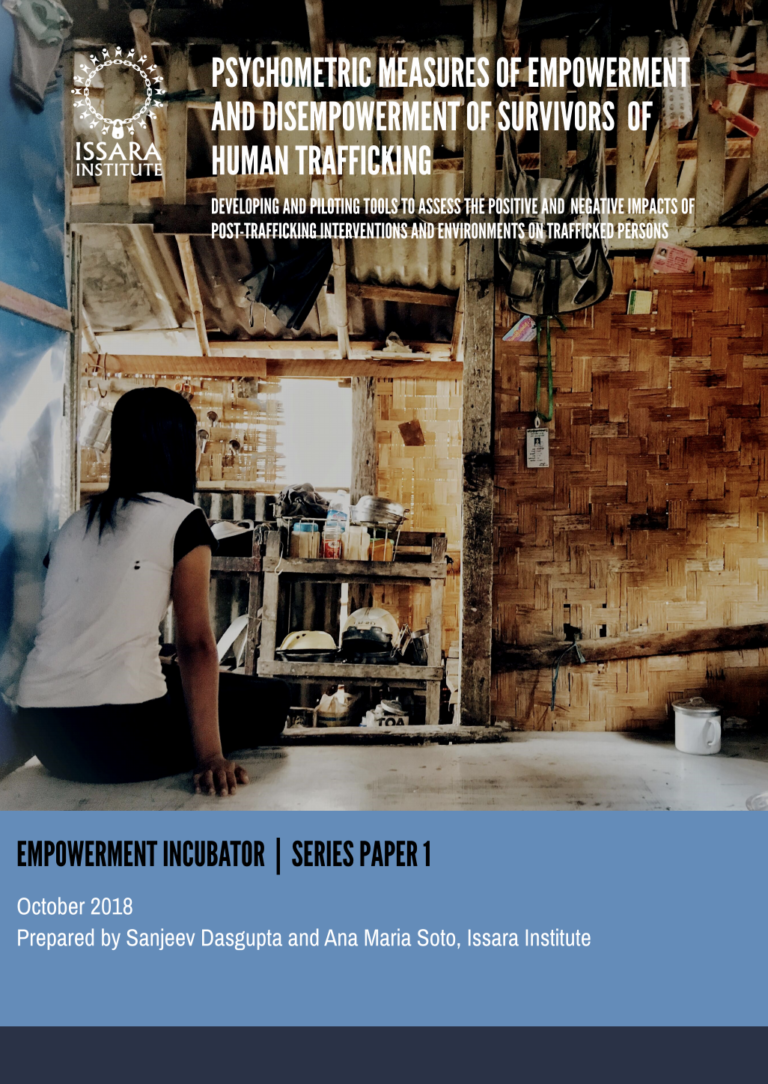Prepared by Sanjeev Dasgupta and Ana Maria Soto, Issara Institute.
According to the 2017 Global Estimates of Modern Slavery, there are about 40 million people living in modern slavery situations worldwide. The Asia-Pacific region has the highest prevalence of labour exploitation worldwide, which is estimated to affect four out of every 1,000 people. While these estimates and the methodologies behind them are debatable, it is clear that most cases go unreported and unidentified because many survivors do not receive any official government-provided support or protection before or after returning to their countries of origin. Fortunately, community based actors such as women’s organizations, youth groups, and faith-based organizations, often step up to fill this gap.
This is the case in Myanmar, which is home to a significant population of trafficking survivors. Over the past two years, the Issara Institute has worked with many local organizations in the country to support and develop their capacities to respond to the needs of trafficking survivors. Central to Issara’s engagement with civil society organizations (CSOs) in Myanmar is its focus on empowerment of trafficking survivors, which Issara feels should be the primary goal of any response strategy. Based on this understanding, Issara and a network of partner CSOs in Myanmar developed and implemented a novel psychometric tool to better deconstruct and measure empowering and disempowering factors among trafficking survivors. Throughout January to August 2018, 76 survivors were interviewed using the tool, and this paper presents findings across two main areas: (i) the specific factors that survivors experienced as empowering and disempowering; and (ii) the way interventions, from NGOs, government, and other actors, can themselves have empowering and disempowering effects on survivors.
Analysis presented through this paper adds merit to the claim that services provided to survivors post-trafficking must be designed by including survivor voice, and must focus primarily on empowering survivors. The use of Issara’s psychometric tool to measure empowerment also provides useful lessons. By deconstructing the concept of empowerment and understanding how individual services can impact different aspects of a survivor’s post-trafficking life both positively and negatively, Issara’s approach provides an alternative to design services and understand their effectiveness after implementation. By providing a more nuanced and in-depth look into how survivors experience individual interventions, the tool goes beyond traditional “trafficking victim protection” metrics – such as merely counting how many survivors were provided with a service –to assess the overall impact made by service providers.
While only a pilot study, the trial of the Psychometric Measures of Empowerment of Trafficking Survivors tool provides valuable lessons that different actors– donors, governments, practitioners, and researchers– can put into action immediately. Overarchingly, the study recommends a shift in the focus of trafficking response from a traditional top-down approach to a survivor-centric one. Donors can play a key role by supporting initiatives that champion survivor empowerment. For practitioners and governments, it is critical that they include survivor voices when designing services for them, and that they systematize such practices for long-term sustainability. Finally, researchers should continue the initial steps taken by Issara’s Empowerment Incubator Program by digging deeper into the various factors that survivors in different contexts find empowering and disempowering, and how governments and civil society actors can best design interventions to champion the cause and outcome of empowerment.

